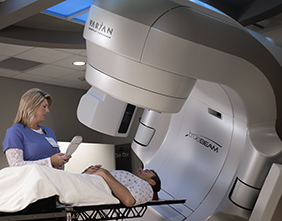Lima Memorial Health Focus: Knowing the Facts About Colon Health
posted on: 3/19/2018 9:22:36 AM
Health & Fitness Guest Columnist
Shannon Wesley, DO
Proctologist
Midwest Surgical Specialists
During various months throughout the year, people have become accustomed to seeing different colored ribbons associated with cancer and disease awareness. Many people may not be aware that March is Colon Cancer Awareness Month. During the month of March, people across the globe will dress in dark blue to raise awareness for colon cancer. Each year during the month of March, my office advocates to the community on the importance of colorectal cancer screening. Colorectal cancer (CRC) is the third most common diagnosed cancer after lung, breast (female) and prostate (male) cancer. For 2018, the estimated number of new cases of colon and rectal cancer is 140,250. Approximately 4.6% of men (1 in 22) and 4.2% of women (1 in 24) will be diagnosed with colon or rectal cancer in their lifetime. CRC accounts for the second most common cancer-related deaths after lung cancer. If these statistics are not alarming enough, approximately 50,000 people will die this year from colon and rectal cancer. With the abundance of new cases and the staggering number of deaths yearly, the need for awareness of this highly preventable disease is important.

Colon and rectal cancer is highly preventable and curable, if caught in its early stages. Several screening tests have been created to help physicians diagnose colon cancer and treat patients. Colon cancer screening is offered in various forms. The most reliable screening tool for early detection is a colonoscopy. During this outpatient procedure, physicians are able to see inside the colon and identify problems, including colon polyps. Most colorectal cancers begin as a polyp, which is growth in the tissue of the colon or rectum. Colon polyps are various shapes and sizes, and they may be flat or raised. Polyps are common in people older than 50 years of age, and while most are benign, there are certain types of polyps that have a higher risk of becoming cancerous. Currently, a colonoscopy is the only test that allows physicians to identify and remove these colon polyps before the polyps have the ability to become cancerous. There are various situations when a colonoscopy may not be appropriate. In these situations, other tests can be performed to screen for problems that may lead to colon cancer. This can include testing stool for blood or DNA to determine a patient’s individual risk for colon cancer. Radiological imaging (double-contrast barium enema or a computed tomography colonography) are also tools that can be used. The best screening for colon cancer is always the one that is being done! Any of these screening tools can be beneficial and should be discussed with your healthcare provider.
Screening for colon cancer typically begins at the age of 50. In fact, most patients do not discuss their colon health with their physician until around this age. However, if there is a family history of colon cancer, colon polyps or if an individual develops symptoms, testing may be recommended earlier than age 50. Symptoms may include, but are not limited to, abdominal pain, change in bowel habits, rectal bleeding / blood in stool or change in stool size. It is important to discuss any changes to your family or personal history with your healthcare provider to best determine when colon cancer screening should begin. When the time comes to begin screening, it is important to discuss all colorectal cancer screening options with your healthcare provider. Colorectal cancer is preventable, treatable and curable, but it requires you speaking up and advocating for your health and wellbeing to make sure healthcare providers can care for you in the best possible way.
Dr. Wesley is one of four female proctologists in the entire country, and one of two who are board certified. She’s also the only board-certified female proctologist in Ohio. It’s her mission to increase colon cancer awareness throughout our community, especially among women and minorities. Dr. Wesley is accepting new patients. To discuss your screening options, click here.
Originally published in The Lima News Health and Fitness section.
Website





